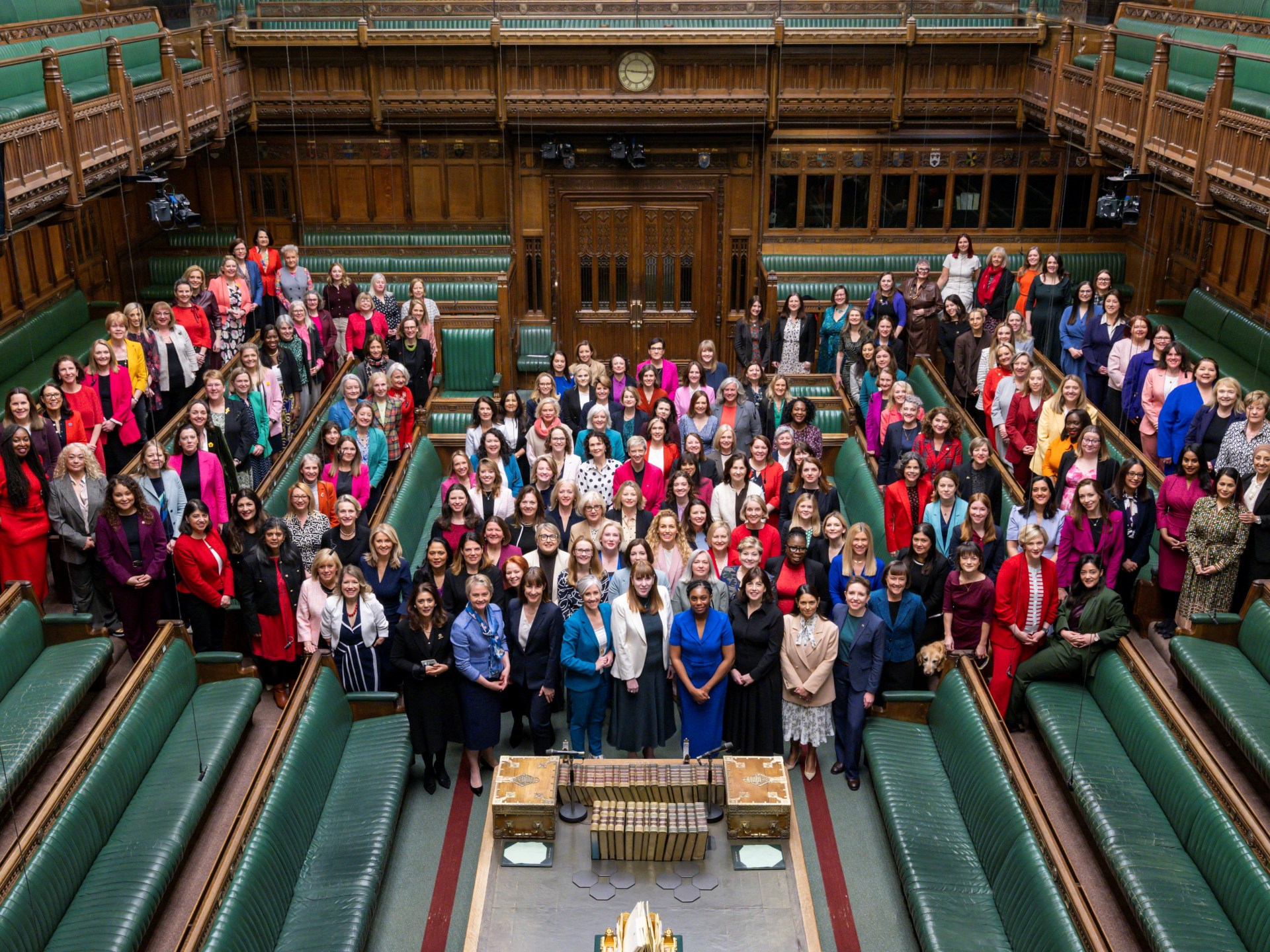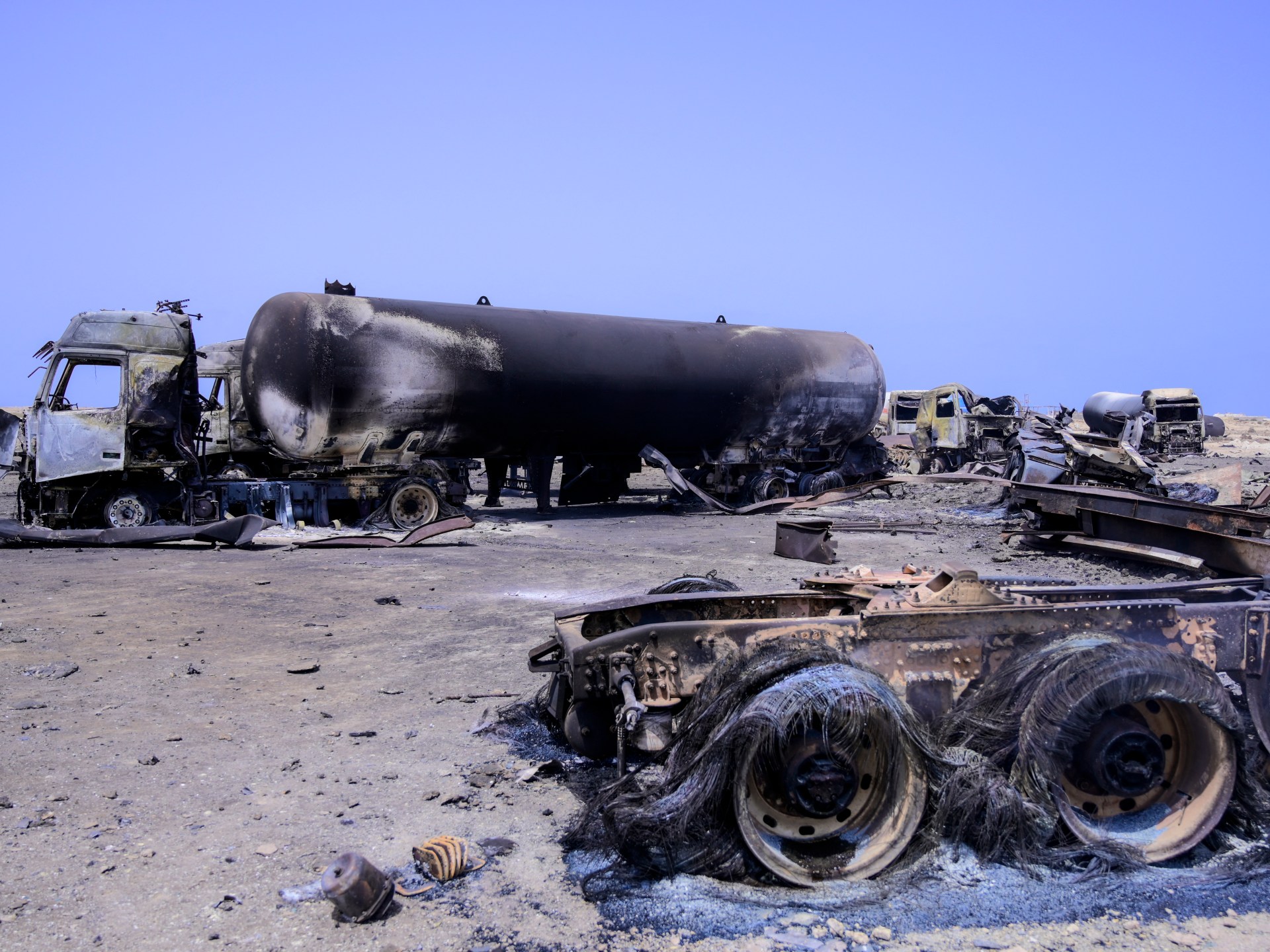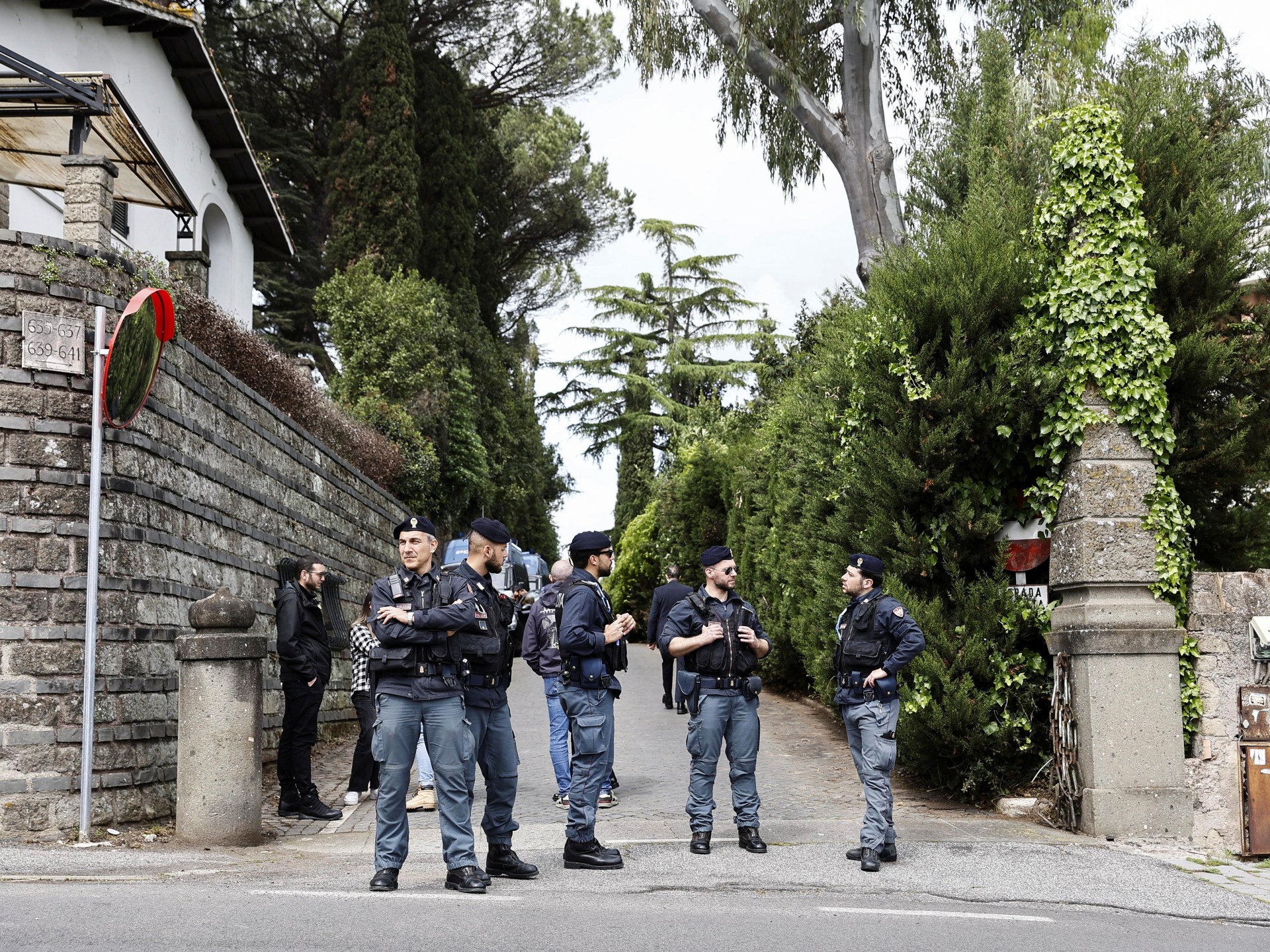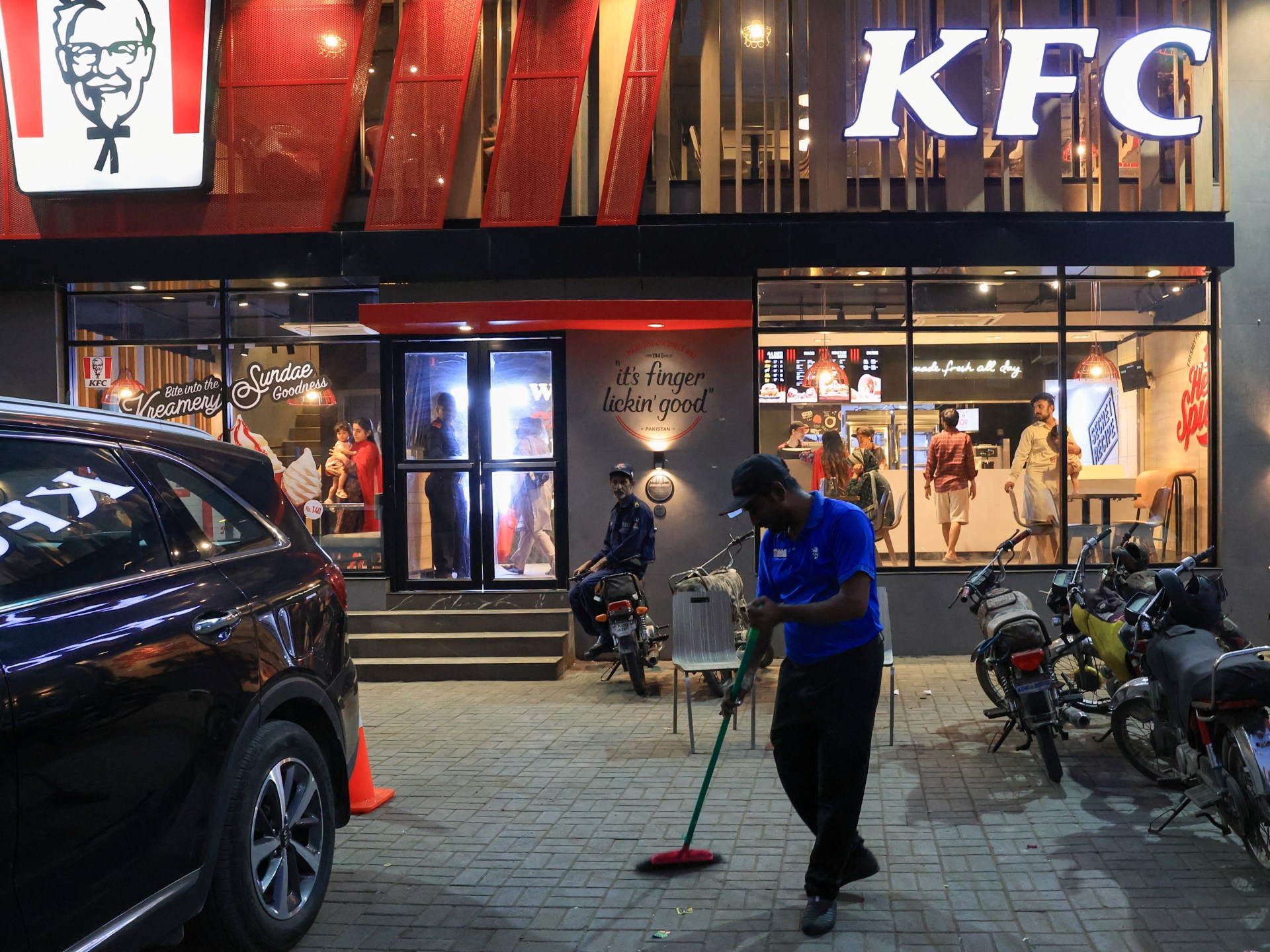Middle East
International Women’s Day is for the few, not the many | Opinions

Every March 8, the world is flooded with glossy campaigns urging us to “accelerate action” and “inspire inclusion”. International Women’s Day has become a polished, PR-friendly spectacle where corporate sponsors preach empowerment while the women most in need of solidarity are left to fend for themselves.
I can only hope that this year’s call to “accelerate action” means action for all women – not just those who fit neatly into corporate feminism, media-friendly activism, and elite success stories.
But if history is any guide, the only action that will be accelerated is the branding of feminism as a marketable commodity, while the women enduring war, occupation, and systemic violence face erasure.
Year after year, International Women’s Day is paraded as a global moment of solidarity, yet its priorities are carefully curated. The feminist establishment rallies behind causes that are palatable, media-friendly, and politically convenient- where women’s struggles can be framed as individual success stories, not systemic injustices.
When Iranian women burned their hijabs in protest, they were met with widespread Western support. When Ukrainian women took up arms, they were hailed as symbols of resilience. But when Palestinian women dig through rubble to pull their children’s bodies from the ruins of their homes, they are met with silence or, worse, suspicion. The same feminist institutions that mobilise against “violence against women” struggle to even utter the words “Gaza” or “genocide”.
In the UK, in the run-up to this year’s International Women’s Day, an MP and feminist organisations have hosted an event on “Giving a Voice to Silenced Women in Afghanistan”, featuring feminists who had spent months calling for boycotts of the Afghan cricket team. Because, of course, that’s how you take on the Taliban – by making sure they can’t play a game of cricket.
This is what passes for international solidarity: Symbolic gestures that do nothing for the women suffering under oppressive regimes but make Western politicians feel morally superior.
Let me be clear: Afghan women deserve every ounce of solidarity and support. Their struggle against an oppressive regime is real, urgent, and devastating – and yes, what they are enduring is gender apartheid.
But acknowledging their suffering does not excuse the rank hypocrisy of those who wield feminism as a political tool, showing up for Afghan women while staying silent on the Palestinian women being starved, bombed, and brutalised before our eyes.
The Taliban’s rise was not some act of nature – it was a direct product of UK and US intervention. After 20 years of occupation, after handing Afghan women back to the very men the West once armed and enabled, these same voices now weep over their fate.
Where were these women MPs, prominent feminists, and mainstream feminist organisations when pregnant Palestinian women were giving birth in the streets of Gaza because hospitals had been bombed? Where was the outcry when Israeli snipers targeted women journalists, like Shireen Abu Akleh? Where were the boycotts when Palestinian girls were pulled from the rubble of their homes, killed by US-made bombs?
Time and time again, we see the same pattern: Feminist outrage is conditional, activism is selective, and solidarity is reserved for those whose struggles do not challenge Western power. Afghan women deserve support. But so do Palestinian women, Sudanese women, Yemeni women. Instead, their suffering is met with silence, suspicion, or outright erasure.
International Women’s Day, once a radical call for equality, has become a hollow spectacle – one where feminist organisations and politicians pick and choose which women deserve justice and which women can be sacrificed at the altar of Western interests.
Feminism has long been wielded by the powerful as a tool to justify empire, war, and occupation – all under the pretence of “saving women”. During the Algerian War of Independence, the French launched a campaign to “liberate” Algerian women from the veil, parading unveiled women in propaganda ceremonies while simultaneously brutalising and raping them in detention centres.
The French, of course, were never concerned about gender equality in Algeria; they readily restricted education and employment for Algerian women. Their actions under the guise of helping women were about domination.
This same narrative of the helpless brown woman in need of white saviours has been used to justify even more recent Western military interventions, from Afghanistan to Iraq. Today, we see the same playbook in Palestine, as well.
The West frames Palestinian women as victims – but not of bombs, displacement, or starvation. No, the real problem, we are told, is Palestinian men. Israeli officials and their Western allies rehash the same Orientalist trope: Palestinian women must be saved from their own culture, from their own people, while their actual suffering under occupation is ignored or dismissed.
The systematic slaughter of women and children is treated as an unfortunate footnote to the conflict, rather than its central atrocity. We see the same pattern again and again – concern for women’s rights only when it serves a political agenda, silence when those rights are crushed under the weight of Western-backed airstrikes and military occupation. This is not solidarity. It is complicity wrapped in feminist rhetoric.
So, who will actually benefit from International Women’s Day this year? Will it be the women whose oppression fits neatly into Western feminist narratives, allowing politicians, feminist organisations, and mainstream women’s advocacy groups to bask in their self-congratulatory glow? Or will it be the women who have been silenced, erased, and dehumanised – those for whom “accelerate action” has meant 17 months of genocide and 76 years of settler colonial violence?
Is this just another “feel-good” exercise, where you can claim to support women across the world without confronting the fact that your feminism has limits? Because if this is truly about accelerating action, then after 17 months of bombing, starvation, and displacement, we should finally hear you stand for Palestinian women.
But we know how this goes. The speeches will be made, the hashtags will trend, the panel discussions will be held – but the women of Gaza will remain buried under the rubble, their suffering too politically inconvenient to mention.
As for me, I am joining the feminist movement’s march today – but let’s be clear, our agendas are not the same. I will march for every Palestinian woman who not only struggles to be heard but has been so brutally dehumanised that her suffering amid a genocide is being broadcast live to blind eyes and deaf ears.
I – along with countless other women who refuse to stay silent – will think of each mother cradling the lifeless body of her child, each daughter forced to become a caretaker overnight, each sister searching through the rubble with her bare hands. And we – women who believe in real feminist solidarity and reject selective outrage – will not just “hope” that this call to action means something; we will make sure it does.
We will make sure Palestinian voices are heard. We will make sure to boycott those who profit from Palestinian oppression. We will make sure to challenge every platform and every feminist who normalises Palestinian suffering, holding them accountable for their complicity.
To our Palestinian sisters: We feel your pain. We have carried your struggle in our hearts for the last 17 months, and we know your fight did not begin there – it has been 76 years of defiance, of survival, of refusing to disappear.
And know this: Next year, on March 8, we will not just mourn your suffering – we will celebrate your victory. Not your so-called “liberation” from your own men, as Western feminists like to frame it, but your liberation from settler-colonial occupation. We hear you. We see you. And we will not rest until the whole world does, too.
The views expressed in this article are the author’s own and do not necessarily reflect Al Jazeera’s editorial stance.
Middle East
US attacks Yemen again after at least 80 people killed in Hodeidah | Israel-Palestine conflict News

UN chief Antonio Guterres says he is ‘gravely concerned’ about US air strikes this week on Yemen.
The United States has carried out 13 air strikes on Hodeidah’s port and airport, the Houthi-affiliated TV channel Al Masirah says, two days after a US air strike targeted the Ras Isa port, also in Hodeidah, killing at least 80 people and wounding more than 150.
Al Masirah also reported Saturday that three people were killed and four injured due to a US attack on al-Thawra, Bani Matar, and al-Safiah districts in the capital Sanaa.
The Houthis have promised to carry out “more operations” despite the ongoing US attacks.
US President Donald Trump’s administration announced a major military offensive against the Houthis a few weeks ago. It said the air strikes are aimed at forcing the Houthis to stop threatening ships sailing on the Red Sea on a route crucial to international trade.
Since November 2023, the group has reportedly launched more than 100 attacks on vessels it says are linked to Israel in response to Israel’s war on Gaza and in solidarity with Palestinians.
On Friday, Houthi official Mohammed Nasser al-Atifi told Al Masirah that the “American enemy’s crimes” will not deter the Yemeni people from supporting Gaza, but “rather will strengthen their steadfastness and resilience”.
The Houthis, also known as Ansar Allah or “supporters of God”, are an armed group that controls most parts of Yemen, including Sanaa. The group emerged in the 1990s but rose to prominence in 2014 when it seized Sanaa and forced President Abd-Rabbu Mansour Hadi to flee the country.
United Nations Secretary-General Antonio Guterres “is gravely concerned about the airstrikes conducted by the United States over the course of 17 and 18 April in and around Yemen’s port of Ra’s Isa, which reportedly resulted in scores of civilian casualties, including five humanitarian workers injured,” Guterres spokesman Stephane Dujarric said in a statement on Saturday.
Guterres expressed fears of damage to the port and “possible oil leaks into the Red Sea”, Dujarric added.
The strikes on Ras Isa aimed to cut off supplies and funds for the Houthis, the US military said. It was the deadliest attack of Washington’s 15-month campaign against the Iran-aligned group.
About 70 percent of Yemen’s imports and 80 percent of its humanitarian assistance pass through the ports of Ras Isa, Hodeidah and as-Salif.
Ras Isa also is the terminus of Yemen’s main oil pipeline, which, along with its port, are “critical and irreplaceable infrastructure” in Yemen, according to the UN Development Programme.
Middle East
Iran says progress in nuclear talks with US, confirms third round next week | News

After technical talks, senior negotiators expected to reunite on April 26, according to Iran’s foreign ministry.
Iran and the United States have completed a second round of indirect nuclear negotiations, which Iran’s foreign minister has described as “constructive” and moving forward with further meetings planned in the coming week.
Abbas Araghchi and US Middle East envoy Steve Witkoff held four hours of indirect talks at Oman’s embassy in the Italian capital, Rome, on Saturday, according to Araghchi.
“We succeeded in reaching a better understanding on certain principles and goals,” the diplomat was quoted by the semiofficial Tasnim news agency as saying. “The negotiations were conducted in a constructive atmosphere and are progressing.”
There has been no readout yet of the meeting from the US side.
The delegations – led by Araghchi and Witkoff, a billionaire real estate executive whom US President Donald Trump has dispatched on numerous foreign policy missions – stayed in separate rooms in the embassy as Omani Foreign Minister Badr al-Busaidi shuttled messages between them, according to Iranian officials.
Iran’s Ministry of Foreign Affairs said the parties will hold more indirect, technical-level talks in the coming days, followed by another meeting with senior officials on April 26.
There were useful indirect talks today between Iran and the United States conducted by Oman Foreign Minister in a constructive atmosphere.
The two sides agreed to continue the indirect talks in few days at technical level to be followed by another round at their own level on…
— Esmaeil Baqaei (@IRIMFA_SPOX) April 19, 2025
“I hope that after next week’s technical sessions, we’ll be in a better position,” Araghchi said, according to Tasnim. “There’s no reason for excessive optimism or pessimism.”
‘Negotiations to pick up’
Al Jazeera’s James Bays, reporting near the Omani diplomatic compound in Rome, said the Iranian response was “very positive” for a delegation that “had seemed pretty negative going into the talks”.
Next week’s planned talks mean “the pace of negotiations is going to be picked up”, Bays said.
The latest meeting comes a week after Iran and the US came together in Muscat for their first high-level discussions since Trump in 2018 unilaterally abandoned a landmark nuclear accord signed and brokered by world powers in 2015.
The Iranians “are looking for a kind of consistency when it comes to the current talks”, Al Jazeera’s Tohid Asadi reported from Tehran.
Will US accept civilian nuclear programme?
Western governments, including the US, have long accused Iran of seeking to develop nuclear weapons – an allegation Tehran has denied, insisting its nuclear programme is solely for peaceful civilian use. On Wednesday, the head of the International Atomic Energy Agency, Rafael Grossi, said Iran was “not far” from possessing a nuclear weapon.
Grossi was also in Rome on Saturday meeting Italian Foreign Minister Antonio Tajani. Grossi’s nuclear watchdog would likely be central in verifying compliance by Iran should a deal be reached, as it did with the 2015 accord.
The US and Iran have had no diplomatic relations since shortly after Iran’s 1979 Islamic Revolution. After returning to office in January, Trump revived his “maximum pressure” sanctions campaign against Tehran, but in March, he sent a letter to Iranian Supreme Leader Ali Khamenei calling for renewed negotiations – while warning of military consequences if diplomacy fails.
“I’m not in a rush” to use force, Trump said on Thursday. “I think Iran wants to talk.”
On Friday, Araghchi said the US showed “a degree of seriousness” during the first round of talks but questioned Washington’s “intentions and motivations”.
Bays said the heart of the dispute remains whether Iran may maintain a civilian nuclear programme – or whether, as hardliners in Washington insist, it must dismantle its nuclear programme entirely.
“All they’ve been talking about last week in Muscat and here in Rome is a framework for the discussions and what they want to achieve,” Bays said. “They have not been discussing the nuclear detail, … and the devil is in the detail on these things.”
Middle East
Over 170 arrested for attacks on Pakistan KFC outlets in Gaza war protests | Israel-Palestine conflict News

Western brands have been hit by boycotts and other forms of protests in Muslim-majority countries due to the Gaza war.
Police have arrested close to 200 people in Pakistan in recent weeks after more than 10 group attacks on outlets of the United States-based fast-food chain KFC, sparked by anti-US sentiment, unconditional US backing for Washington’s close ally Israel and opposition to Israel’s war in Gaza, officials say.
The fast-food chain has become a target of protest and boycott calls by Islamist parties since the start of the war in Gaza as they link the brand to US support for Israel.
At least 178 people have been arrested, the officials said this week.
Police in major cities in Pakistan – including the southern port city of Karachi, the eastern city of Lahore and the capital, Islamabad – confirmed at least 11 incidents in which KFC chicken restaurants were attacked by protesters armed with sticks and vandalised.
A police official, who spoke on condition of anonymity, said one KFC employee was shot and killed this week in a store on the outskirts of Lahore by unknown gunmen. The official added there was no protest at the time and police were investigating whether the killing was politically motivated or for some other reason.
In Lahore, police said they were ramping up security at 27 KFC outlets after two attacks took place and five were prevented.
“We are investigating the role of different individuals and groups in these attacks,” Faisal Kamran, a senior Lahore police officer told the Reuters news agency, adding that 11 people, including a member of the Islamist party Tehreek-e-Labbaik Pakistan (TLP), have been arrested in the city. He added the protests were not officially organised by the TLP.
TLP spokesman Rehan Mohsin Khan said the group “has urged Muslims to boycott Israeli products, but it has not given any call for protest outside KFC”.
“If any other person claiming to be a TLP leader or activist has indulged in such activity, it should be taken as his personal act which has nothing to do with the party’s policy,” Khan said.
Western brands have been hit by boycotts and other forms of protests in Pakistan, other Muslim-majority countries and several Western nations over Israel’s military offensive in the Gaza Strip.
In February last year, McDonald’s cited boycott campaigns in the Middle East, Indonesia and Malaysia for sales growing just 0.7 percent during the fourth quarter of 2023, compared with 16.5 percent growth in the same quarter the previous year.
Unilever – which produces Dove soap, Ben & Jerry’s ice cream and Knorr stock cubes – also said sales in Indonesia in the same quarter had experienced a double-digit decline as a result of “geopolitically focused, consumer-facing campaigns”.
A KFC restaurant in the Pakistan-administered region of Kashmir was also set on fire in March last year as protesters chanted “Free Palestine.”
More than 51,900 people have been killed in Gaza during Israel’s war, which began 18 months ago.
At least 1,139 people were killed in Israel during the Hamas-led attacks of October 7, 2023, and more than 200 were taken captive.
KFC and its parent company Yum Brands have not yet responded to news of the arrests in Pakistan.
-

 Education1 day ago
Education1 day agoHarvard’s battle with the Trump administration is creating a thorny financial situation
-

 Sports2 days ago
Sports2 days agoAaron Rodgers ‘not holding anybody hostage’ as he decides his future, retirement a possibility
-

 Europe2 days ago
Europe2 days agoGerman police raid home of teenage boy suspected of making highly toxic warfare agent
-

 Europe1 day ago
Europe1 day agoThe Trump administration says Europe is taking advantage of the US. That’s not exactly true
-

 Europe1 day ago
Europe1 day agoTrump’s ‘lone ranger’: How Steve Witkoff became the defacto point man on America’s foreign policy challenges
-

 Lifestyle1 day ago
Lifestyle1 day agoSweets from the sky! A helicopter marshmallow drop thrills kids in suburban Detroit
-

 Conflict Zones1 day ago
Conflict Zones1 day agoTrump says US may ‘pass’ on helping end war if Russia, Ukraine resist deal | Russia-Ukraine war News
-

 Sports2 days ago
Sports2 days agoManchester United pulls off ‘miracle’ Europa League victory against Lyon



